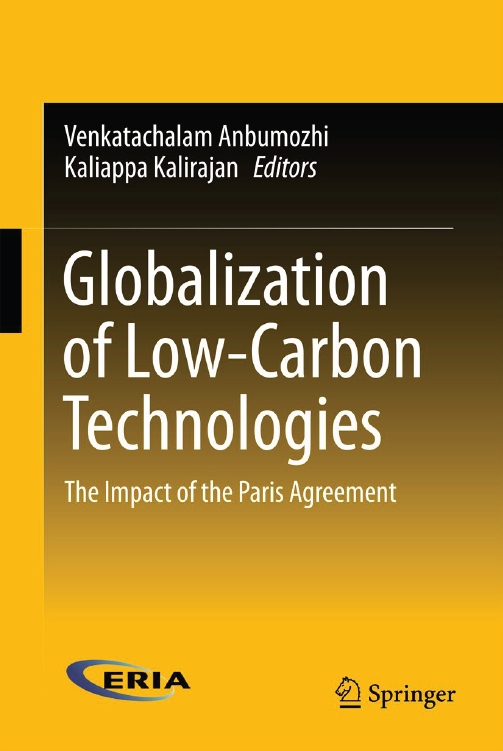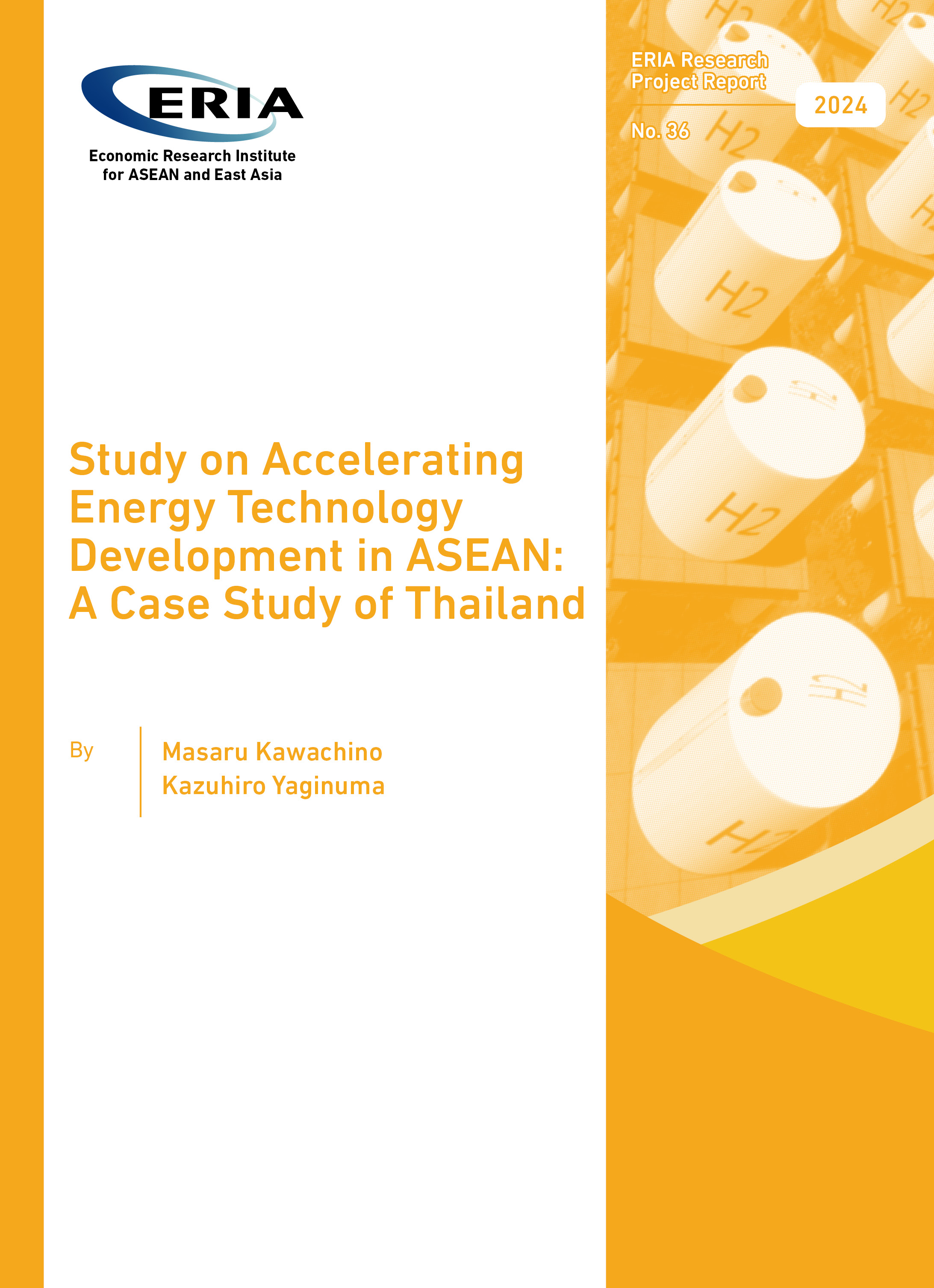Globalization of Low-Carbon Technologies: The Impact of the Paris Agreement

Date:
6 November 2017Category:
Co-Publications, EnergyType:
BooksTags:
Energy, Technology, GlobalizationPrint Article:
This book explores the opportunities and barriers within the Intended Nationally Determined Contributions (INDC) framework of the Paris Agreement for low-carbon technology diffusion. Further, it proposes appropriate and feasible mechanisms required at local, national and regional levels to achieve the INDC targets.
The book employs both meta policy analysis and scenario building to examine, whether the diffusion of low-carbon energy future by 2030 is economically viable under the INDC framework and how international technology cooperation could accelerate investments on the scale required for achieving the INDC targets. Further, this book provides new perspectives on market and non-market mechanisms for the globalization of low-carbon technologies, within the framework conditions of the Paris Agreement, which will be of significant value to senior policy makers, multi-disciplinary academia, and investing communities.
About the Book
Edited by Venkatachalam Anbumozhi and Kaliappa Kalirajan
621 pages | 98 Illus., 93 Illus in color.
Table of Contents
- Paris Agreement and Globalization of Low-Carbon Technologies: What's Next for Asia? (Anbumozhi, Venkatachalam (et al.))
- INDC and Low-Carbon Technology Deployment Scenarios: China (Zhu, Yuezhong (et al.))
- INDC and Low-Carbon Technology Deployment Scenarios: India (Mathur, Ritu (et al.))
- INDC and Low-Carbon Technology Deployment Scenarios: Indonesia (Patunru, Arianto A. (et al.))
- INDC and Low-Carbon Technology Deployment Scenarios: Malaysia (Chandran Govindaraju, V. G. R.)
- INDC and Low-Carbon Technology Deployment Scenarios: Philippines (Elauria, Jessie C. (et al.))
- INDC and Low-Carbon Technology Deployment Scenarios: Thailand (Chotichanathawewong, Qwanruedee)
- INDC and Low-Carbon Technology Deployment Scenarios: Vietnam (Toan, Pham Khanh (et al.))
- INDC and Low-Carbon Technology Deployment Scenarios: Cambodia, Lao PDR and Myanmar (Suryadi, Beni (et al.))
- Estimating the Low-Carbon Technology Deployment Costs and INDC Targets (Kumar, Sivanappan (et al.))
- INDC Costs and Experiences in Removing Low-Carbon Technology Barriers: Japan (Asuka, Jusen)
- INDC Costs and Experiences in Removing Low-Carbon Technology Barriers: New Zealand (Hill, Douglas)
- INDC Costs and Experiences in Removing Low-Carbon Technology Barriers: Australia (Wijesekere, Gaminiratne (et al.))
- Regulatory Instruments and the Diffusion of Low-Carbon Technologies in the European Union (Helble, Matthias (et al.))
- World Bank Experience in Low-Carbon Investments and the Role of Carbon Pricing in China (Timilsina, Govinda R. (et al.))
- Establishing a Low-Carbon Technology Finance Mechanism: Asian Development Bank Experiences on Climate Technology Finance Center (Mo, Lingshui (et al.))
More Information
Click here to buy the book. Hardcover version available.




